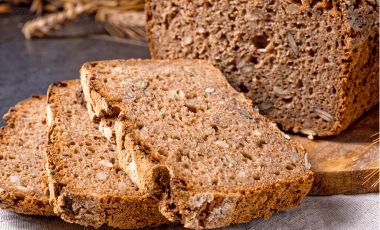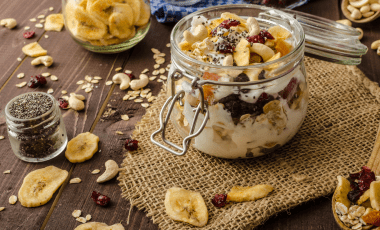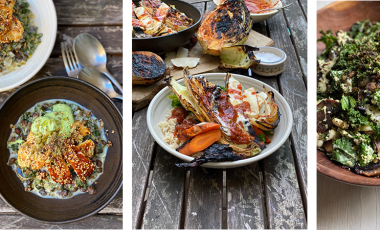Are you also one of those people who just quickly buys a sandwich at lunchtime because our stressful everyday lives leave us hardly any time for a balanced diet? Or are you sometimes frustrated by the food on offer in the company canteen? If so, then meal prepping might provide you with a simple alternative. Read below what this modern-day term refers to, and why – if done correctly – it can impact positively on your diet.
Meal prepping – what’s behind the concept?
Isn’t that just something for real fitness professionals? Well, one thing we do know, is that this is not at all the case! However, this current expression does originate from the sports scene in the USA. Here, fitness and body-building professionals are simply continuing something they learned from their parents and grandparents – precooking. In generations gone by, in extended families, cooking meals to eat over the next several days was normal. After all, there were many hungry mouths to feed and little time to prepare meals. In the area of sport, the concept was then modified with the aim of consuming only certain amounts of calories and macronutrients (macros) in order to ensure athletes perform to their maximum. In essence, the simple idea of meal prepping is suitable for anybody who wants to be organised and self-aware in the way they lead their life.
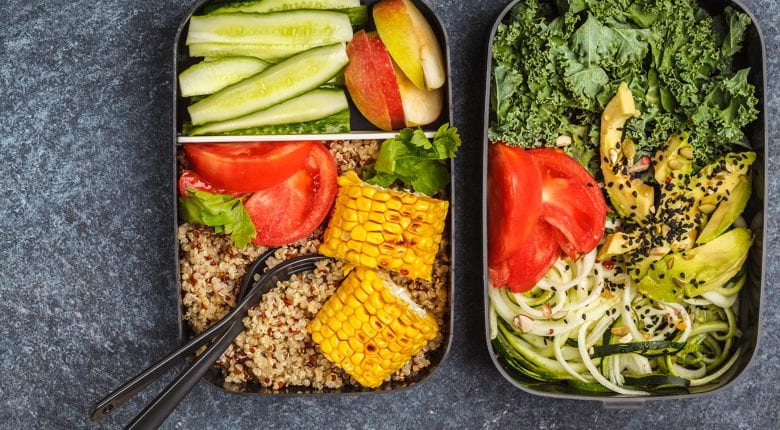
And how healthy is it?
We are all aware on some level that in our stressful everyday lives, a balanced diet often goes neglected. After a long day at work sometimes the easiest and most convenient food is often chosen instead of the more time consuming and nutritious meal. Preparation when shopping and planning meals, however, really pays off. A French study by the University of Paris involving 40,000 participants was able to determine the positive impact which meal planning had on the health of the respondents: People who plan their meals tend to follow French dietary guidelines, are less likely to be overweight and enjoy a more varied choice of food.
If you also finish up all of the prepared meals, then meal planning even scores well environmentally. On the one hand, the deliberate purchasing and cooking of larger quantities causes less food waste. On the other, it is also resource-efficient, as the oven only needs to be used once instead of multiple times
Preparing the precooking: planning, shopping, preparing, enjoying.
The first thing you should do is to thoroughly plan your meals in advance. Ask yourself some questions: What do we like to eat as a family? What do I fancy having next week? But don’t just think about personal preferences, organisational factors must also be considered. Which foods are in season and which can I buy locally? When do I need to buy food and in which quantities? How long will the different foodstuffs keep in the fridge? What do I have to freeze? What can I cook from fresh?
In the next step, you should ideally note down all the groceries needed on a shopping list. This will save a lot of time when doing your weekly shopping.
This planning means your preparation will now be a lot quicker. In some cases, it is not advisable to precook all food for the whole week, but only individual components. For example, you can prepare rice and then freeze parts of it for the end of the week. However, noodles are best prepared from fresh, otherwise they become too soft.
When the start of the week then arrives, the food preparation will be very quick. Simply combine your individual components and produce a delicious main course in just a few minutes.
Storage
It is best to store your individual menu components in individual containers so that their full flavour is preserved. Glass or plastic containers which can be sealed and reused are suitable for storage. The shelf life of the food will vary depending on the type and duration of storage. Here’s a little tip: The best way to keep your components fresh is to store sauces or dips in separate containers.
Recipe Idea
Overnight oats are also a quick idea for breakfast. Their preparation could not be easier:
* 50 g of porridge oats
* About 150 ml of milk or a dairy-free alternative
* Spices according to taste
* Fruit of your choice
* Nuts and seeds of your choice
For this, mix the oat flakes with the liquid and spices in a simple screw-top jar and leave in the refrigerator overnight. The next day you simply add ingredients of your choice and you have a real energy-packed breakfast for the morning. You can also try the recipe with natural yoghurt. Many fitness enthusiasts often stir in a serving of their preferred protein powder to help with muscle recovery and ensure they get required macros from their meal prep.
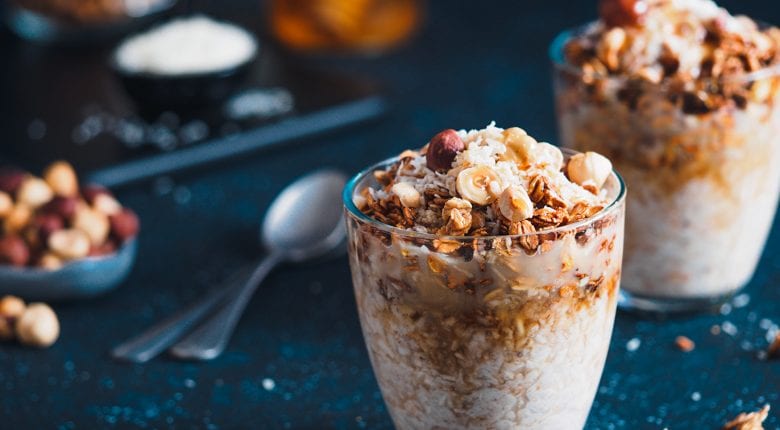
Practice makes perfect!
Of course, those new to precooking food also come up against major challenges. For example, the motivation to eat healthier can quickly diminish if you end up with a one-dimensional choice of food and therefore a lack of nutrients. At this point the desire for sweet treats switches in automatically. The meal prepping trend sometimes also gets in the way of our eating habits and basically our everyday lives. Spontaneous dinner invitations and “I think I’d prefer something different today” are difficult to plan for when the food is already cooked and waiting in the fridge. However, individual planning can help with this. Meal preparation is also worthwhile just one or two days in advance. Why not try it out and prepare twice the amount when cooking in the evening.
#Mealprepping #Mealprep #Planning #Implementation #Recipeideas #Health #Enjoyment #Lifestyle #Savingtime #Storage #Flexibility


